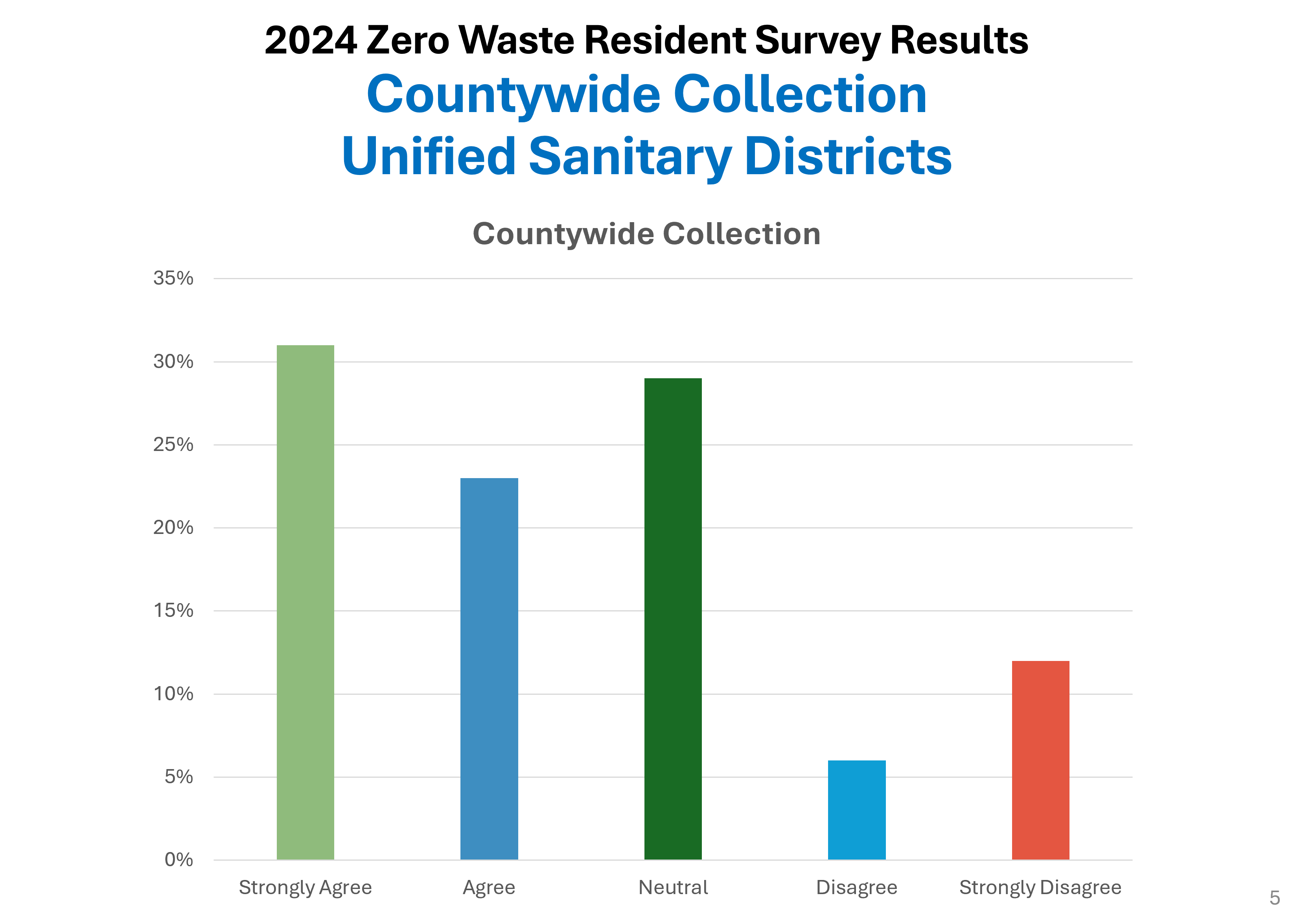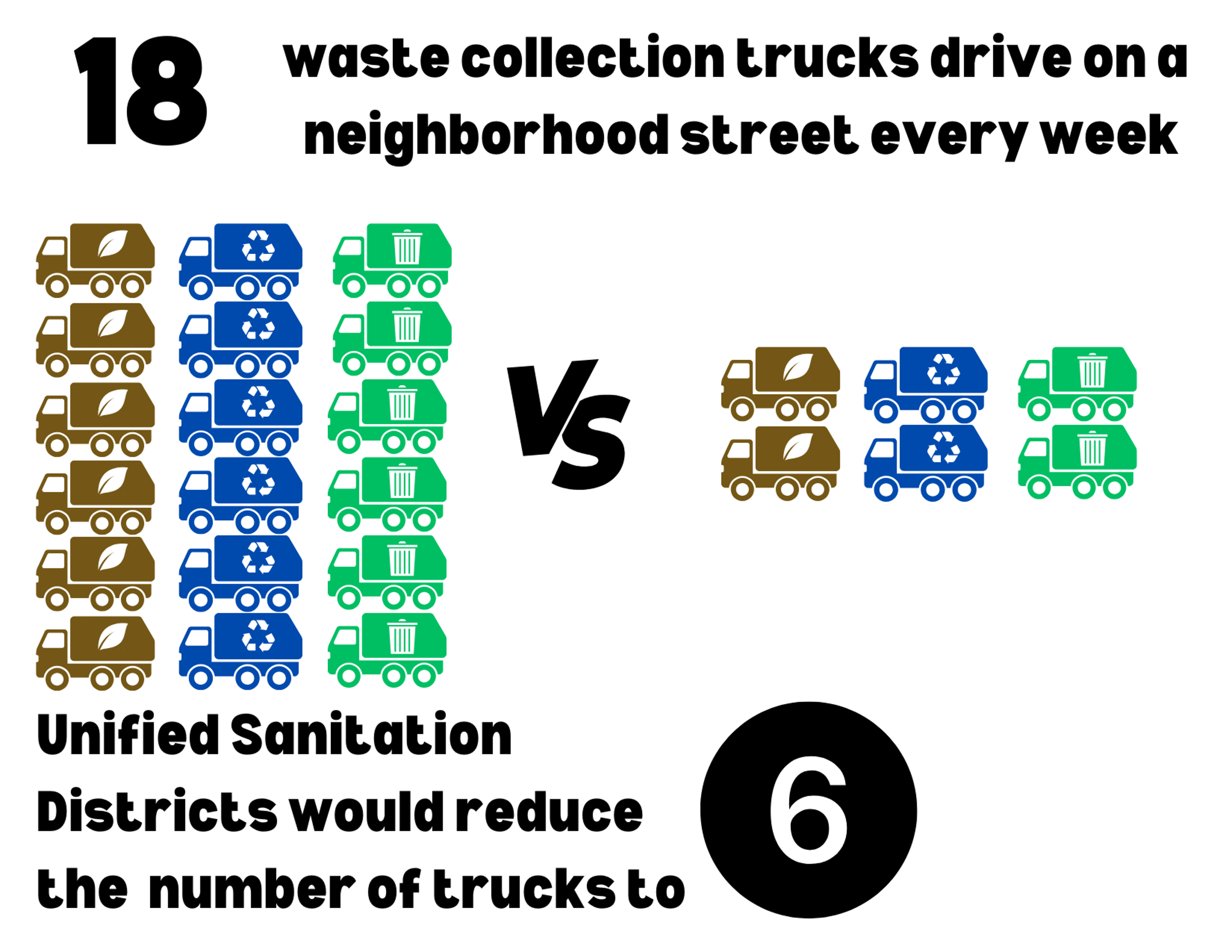What is a USD?
- USD or a Unified Sanitation District is an area where all single-family residential customers, including townhomes, in a defined area would receive trash service under contracts administered by the county.
- The County would competitively procure and manage transparent contracts with multiple private trash collectors.
- Your customer service contact would be Fairfax County.
- Fairfax County would hold collectors accountable through contract standards.
- The USD would allow for expanded service options (for example, food waste collection, bulk pickup, choice of cart size, and other services).
Why propose the USD?
- Without the USD, the county does not have the authority to:
- Limit the number of private haulers operating in a neighborhood.
- Regulate trash collection price.
- Achieve the community’s sustainability goals for residential service.
- There are many examples of communities that have a USD system that benefits the residents and are successful.
USD can only be started with a Board of Supervisors vote and implemented after a five-year waiting period required by Virginia law.



